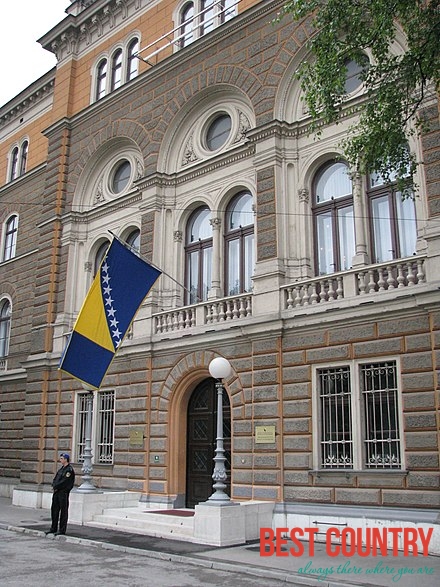Politics of Bosnia and Herzegovina
25/09/2021

The Politics of Bosnia and Herzegovina takes place in a framework of a parliamentary representative democracy, whereby executive power is exercised by the Council of Ministers of Bosnia and Herzegovina. Legislative power is vested in both the Council of Ministers and the Parliamentary Assembly of Bosnia and Herzegovina. Members of the Parliamentary Assembly are chosen according to a proportional representation system.
The judiciary is independent of the executive and the legislature. The system of government established by the Dayton Agreement is an example of consociationalism, as representation is by elites who represent the country's three major ethnic groups termed constituent peoples, with each having a guaranteed share of power.
Bosnia and Herzegovina is divided into two Entities – the Federation of Bosnia and Herzegovina and the Republika Srpska, which are politically autonomous to an extent, as well as the Brčko District, which is jointly administered by both. The Entities have their own constitutions.The Economist Intelligence Unit rated Bosnia and Herzegovina a "hybrid regime" in 2019.
- High Representative - Christian Schmidta
- Chairman of the Presidency - Željko Komšićb
- Members of the Presidency - Šefik Džaferovićc, Milorad Dodikd
- Chairman of the Council of Ministers - Zoran Tegeltija
Information actual in 2021